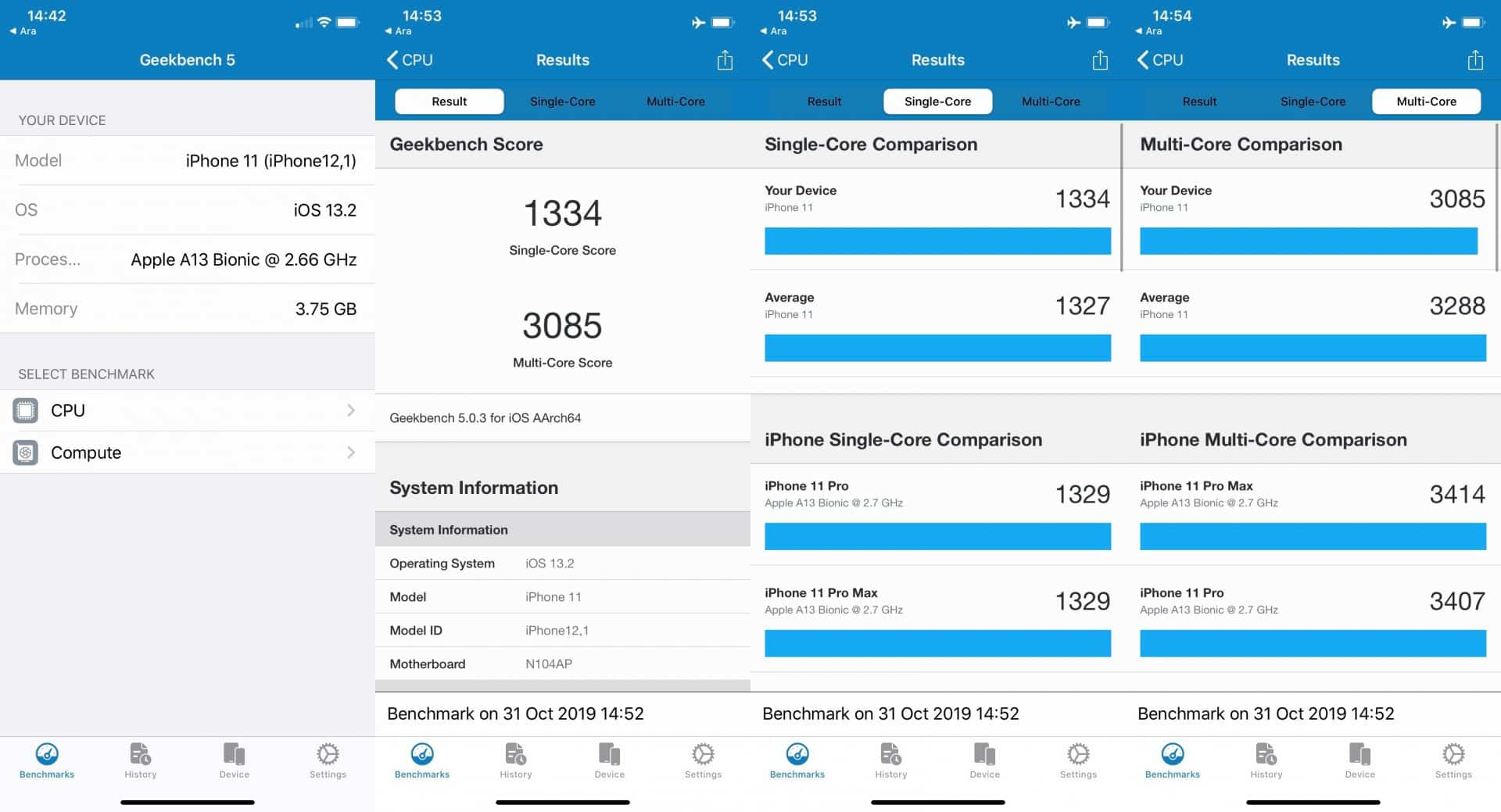
#Geekbench iphone 13 pro
In comparison with the Geekbench listing for the iPhone 13 Pro Max, the new iPhone 14 Pro Max only offers about 8.7 percent improvement in single-core performance, and about 22 percent increase in multi-core performance. Since, the model ID for the iPhone 13 Pro Max is iPhone 14,3 on Geekbench, it is likely that the listing belongs to the iPhone 14 Pro Max. The Geekbench listing of the iPhone 15,3 suggests that the handset has scored 1,879 in single-core performance and 4,664 in multi-core performance. The new handset was launched on September 7, during the company's ‘Far Out' event. The iPhone 14 Pro Max is powered by the Apple A16 Bionic chip, whereas, last year's iPhone 13 Pro Max features an Apple A15 Bionic SoC. In comparison with the iPhone 13 Pro Max (which is listed on the benchmarking website with the model ID iPhone 14,3), the company's latest handset is listed to offer an 8.7 percent improvement in single-core performance, and about 22 percent increase in multi-core performance. A new listing for a handset called iPhone 15,3 is likely to belong to the newly launched iPhone 14 Pro Max. Instead, it states the CPU configuration of the final version.Apple's iPhone 14 Pro Max has been spotted on the Geekbench benchmarking website. Here, you should note that the Google Tensor G3’s info below is not from an engineering sample. With all that said, let’s get quickly recap the information we got yesterday. CPU Config Comparison of Google Tensor G3, Tensor G2, and Tensor G1
#Geekbench iphone 13 update
And as always, we will update you when we get more concrete data about the SoC’s performance. But for now, you should treat the listing information with a good grain of salt.
#Geekbench iphone 13 series
Otherwise, the Pixel 8 series will be weak against the competition. Regardless, we can only hope that the actual benchmark scores for the Google Tensor G3 surpass those of the current listing. But the listing showed that it ran at 3.02 GHz. As he shows, the Geekbench result was from a chipset that was running at GHz. And the screenshot provided by Quadrans Muralis further solidifies this claim. The thing is, Geekbench scores can be easily manipulated. And if the test was indeed on an SoC without the Cortex X3, the unimpressive scores do make a lot of sense. As I covered yesterday, the single Cortex X3 core 3.0 GHz is one of the main highlights of the Google Tensor G3. Let’s take a closer look –īut as Mapple_Gold points out, the Geekbench listing does not confirm that the SoC has a Cortex X3 core.

There are a couple of red flags on the Geekbench listing of Google Tensor G3. That’s a big difference from what the Geekbench listing of the Google Tensor G3 is showing.

And for the multi-core test, the 8 Gen 2 obtains an impressive 5137 score. The current generation flagship SoC, Snapdragon 8 Gen 2, gets 1867 in single-core. And the important part is that the Snapdragon 8 Gen 1 is a last-generation chipset. So, in both cases, the Geekbench results show that the Google Tensor G3 performed worse than the Snapdragon 8 Gen 1. And for multi-core, the Snapdragon 8 Gen 1 gets 3840. To give you a perspective, the Snapdragon 8 Gen 1 scores 1615 in the single-core test of Geekbench 5. On the other hand, the multi-core score is at 3809.

It says that the benchmark results are for “Google Factory build on Ripcurrent.” Nonetheless, as you can see from the listing, the Google Tensor G3 is shown to offer a single-core score of 1186. Take a look – Google Tensor G3 Geekbench 5 And interestingly, the listing is indeed present in the database of Geekbench. Revegnus has spotted a Geekbench listing for the Google Tensor G3. And it says the complete opposite! Even Snapdragon 8 Gen 1 Shown to Perform Better Than Google Tensor G3 But a Geekbench listing of the processor has popped out. As far as I can tell, these upgrades should make the Tensor G3 better compete with the current flagships. The upgrades include an improved CPU configuration, enhanced security features, and a new onboard GPU capable of ray-tracing.


 0 kommentar(er)
0 kommentar(er)
